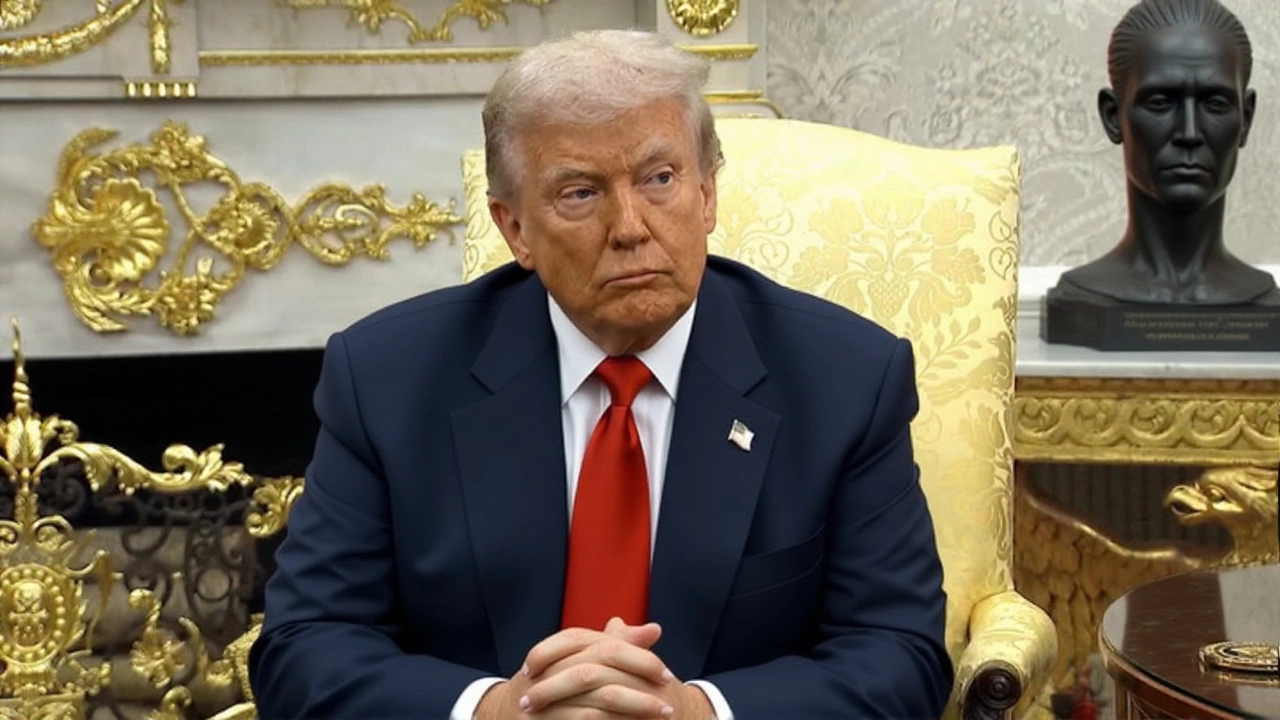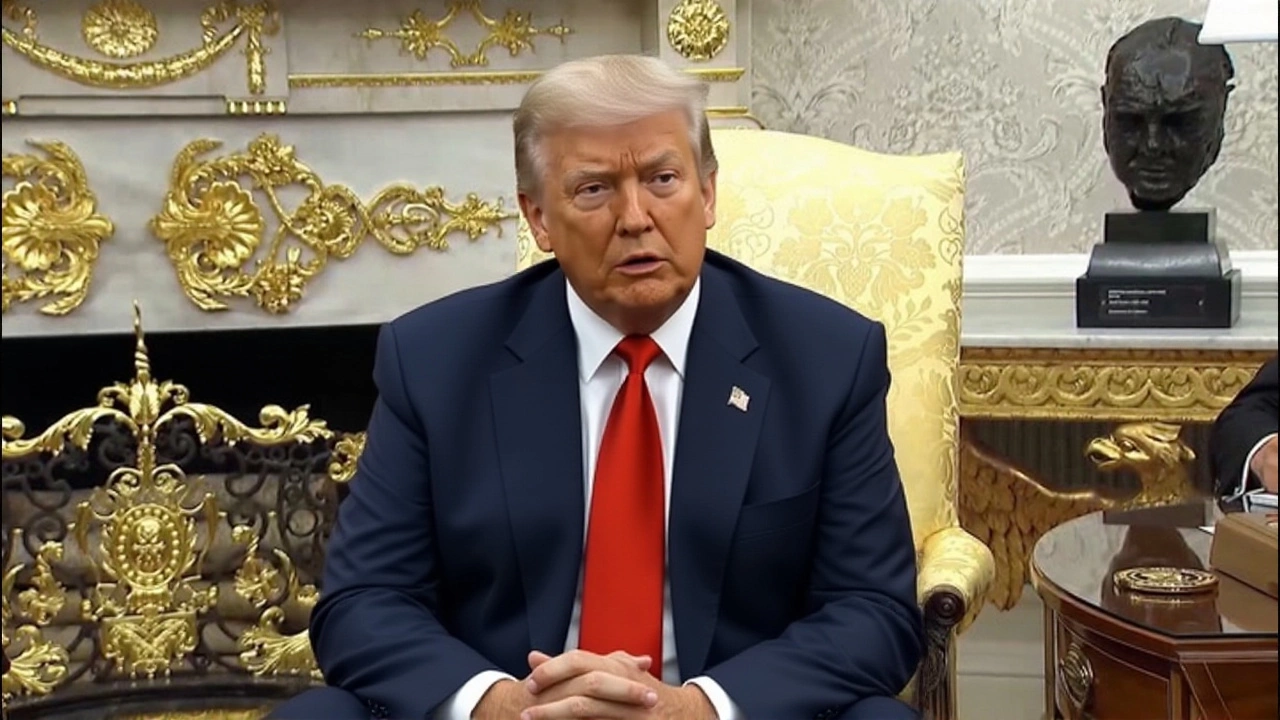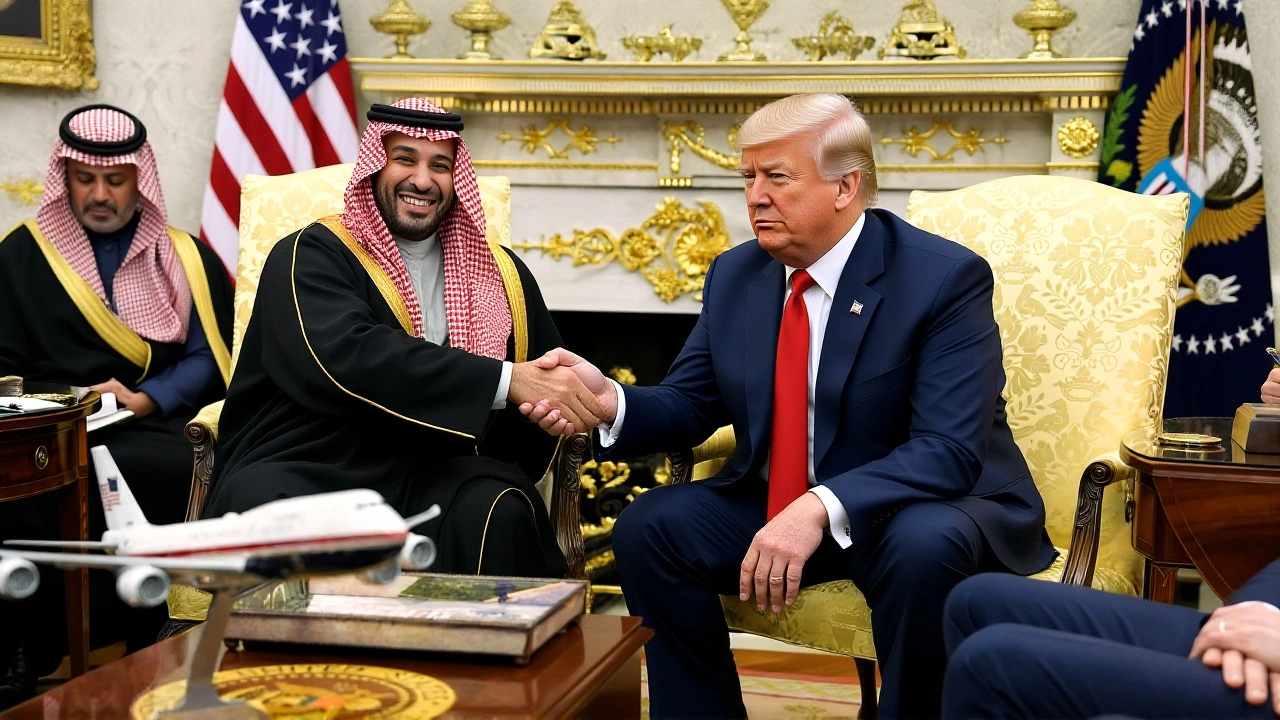When President Donald J. Trump told reporters in the White House on November 18, 2025, that Mohammed bin Salman "knew nothing" about the 2018 murder of journalist Jamal Khashoggi, he didn’t just rewrite history—he erased a widow’s grief. Hanan Elatr Khashoggi, the Egyptian-American widow of the slain Washington Post columnist, responded with quiet fury during a live interview with CBS News. "It was so devastated for me," she said, her voice steady but raw. "He admitted responsibility. Then did nothing."
"I’m Responsible"—But Only in Words
The Crown Prince’s March 2019 60 Minutes interview with CBS News remains one of the most chilling moments in modern geopolitics. Facing global outrage over Khashoggi’s brutal killing inside the Saudi Consulate in Istanbul, Mohammed bin Salman told Leslie Stahl: "I’m responsible as a leader." It was a phrase designed to soothe, not satisfy. He didn’t name names. He didn’t offer justice. He didn’t even say "I ordered it." And yet, for many Western leaders, it was enough. But Hanan Elatr Khashoggi wasn’t buying it. "He said it verbally," she told CBS’s Nancy Cordes. "But where’s the trial? Where’s the apology? Where’s the accountability?" The 18 men identified by Turkish investigators—including members of Saudi Arabia’s elite Rapid Intervention Force—were never publicly tried. Eight were convicted in a secret Saudi court in December 2019. Five received pardons in May 2020 after Khashoggi’s sons, who had no relationship with their father’s widow, declared forgiveness under Islamic tradition. She wasn’t consulted. She wasn’t even informed.The Intelligence That Couldn’t Be Ignored
The U.S. intelligence community didn’t need Saudi denials. In November 2018, the Central Intelligence Agency concluded with "high confidence" that Mohammed bin Salman personally ordered the operation to capture or kill Khashoggi. That assessment was later echoed by then-Director of National Intelligence Dan Coats, who told Congress in February 2019 that the Crown Prince had "absolute control" over Saudi security forces and "probably" approved the killing. The operation itself was chillingly precise. On October 2, 2018, at 1:14 p.m. Istanbul time, a 15-member team—armed with a bone saw and plastic wrap—lured Khashoggi into the consulate. He was strangled, dismembered, and his body dissolved in acid. The Saudis initially claimed he’d left the building alive. Then they admitted he died in a "rogue operation." The truth? It was a state-sanctioned assassination.
Why Trump’s Words Matter Now
Trump’s remarks didn’t come out of nowhere. They’re part of a pattern: downplaying human rights abuses to protect the U.S.-Saudi strategic alliance. Since 2018, every U.S. administration—Republican and Democratic—has prioritized arms sales, oil security, and regional counterterrorism cooperation over justice for Khashoggi. But Trump’s phrasing was uniquely dismissive. "Knew nothing?" That’s not just revisionism. It’s a moral surrender. The Washington Post, where Khashoggi wrote scathing columns on Saudi repression, has long called for accountability. His final piece, published just days before his death, warned of "a new era of silence" in the Arab world. He was right. And now, five years later, his widow is still shouting into that silence.The Unfinished Business of Justice
Hanan Elatr Khashoggi hasn’t just waited. She’s fought. She’s petitioned the United Nations. She’s met with U.S. lawmakers. She’s testified before the European Parliament. But the Saudi government has never issued an official apology. The 18 perpetrators remain unpunished. No one has been extradited. No one has been held in a transparent court. Even the UN Special Rapporteur, Agnes Callamard, called the killing an "extrajudicial execution" under international law. Still, no charges were filed abroad. The Saudi judiciary’s handling of the case—secret trials, pardons granted without victim input, sentences reduced to a few years—was widely condemned by human rights groups. Amnesty International called it a "sham." Human Rights Watch said it "reinforced impunity." And now, with Trump’s Oval Office comments, the world is being asked to forget again.
What’s Next?
The Biden administration has quietly continued arms sales to Saudi Arabia, despite Congress’s 2021 attempt to block them. The State Department still refuses to release the full declassified intelligence report on Khashoggi’s killing. Meanwhile, Hanan Elatr Khashoggi says she’ll keep speaking—until someone listens. There’s a growing movement among U.S. lawmakers, including Senator Chris Murphy and Representative Tom Malinowski, to reintroduce the Khashoggi Ban Act, which would sanction any foreign official involved in journalist killings. But without public pressure, it will die quietly—like the truth about what happened in Istanbul.Frequently Asked Questions
Why didn’t the U.S. punish Saudi Arabia for Khashoggi’s murder?
Despite overwhelming intelligence proving Crown Prince Mohammed bin Salman’s involvement, U.S. administrations have prioritized strategic interests—arms deals worth over $110 billion since 2018, oil stability, and regional alliances against Iran—over justice. Sanctions were imposed on low-level operatives, but never on the Crown Prince or top officials. The 2020 Khashoggi Ban Act failed to pass, and no high-level Saudi official has faced criminal charges in any country.
What did Mohammed bin Salman actually admit in the 60 Minutes interview?
In March 2019, he told CBS’s Leslie Stahl: "I’m responsible as a leader," acknowledging oversight failure but denying prior knowledge of the operation. He never said "I ordered it," never named the killers, and never offered a trial or apology. The statement was carefully worded to deflect blame while preserving his image as a reformer. U.S. officials at the time called it "sufficient," a judgment widely criticized by human rights advocates and Khashoggi’s widow.
Why were five of the convicted men pardoned?
Under Islamic tradition, the family of a murder victim can grant forgiveness, which legally nullifies punishment. Khashoggi’s sons, who had minimal contact with him before his death, announced they forgave the killers in May 2020. But Hanan Elatr Khashoggi, as his legal spouse, was never consulted. The Saudi government used the pardons to close the case publicly, despite international outcry and the fact that Khashoggi had no children with her.
Has anyone been held accountable outside Saudi Arabia?
No. Turkey has issued arrest warrants for 20 suspects, including high-ranking Saudi officials, but Saudi Arabia refuses to extradite anyone. The International Criminal Court has not opened an investigation, citing jurisdictional limits. The U.S. has never pursued criminal charges against any Saudi official. As a result, the perpetrators remain free, some still serving in Saudi security forces.
What does Hanan Elatr Khashoggi want now?
She demands two things: a transparent, international trial for all 18 perpetrators identified by Turkish investigators, and an official, public apology from the Kingdom of Saudi Arabia. She has rejected financial settlements and symbolic gestures. "Money doesn’t bring back Jamal," she says. "Justice does. And until that happens, his voice won’t be silenced."
How has the media responded to Trump’s recent comments?
Major outlets like The Washington Post, The New York Times, and BBC condemned Trump’s remarks as a dangerous distortion of facts. Editorials called it "a betrayal of press freedom." The Committee to Protect Journalists issued a statement: "When leaders deny state-sponsored murder, they embolden tyrants."
